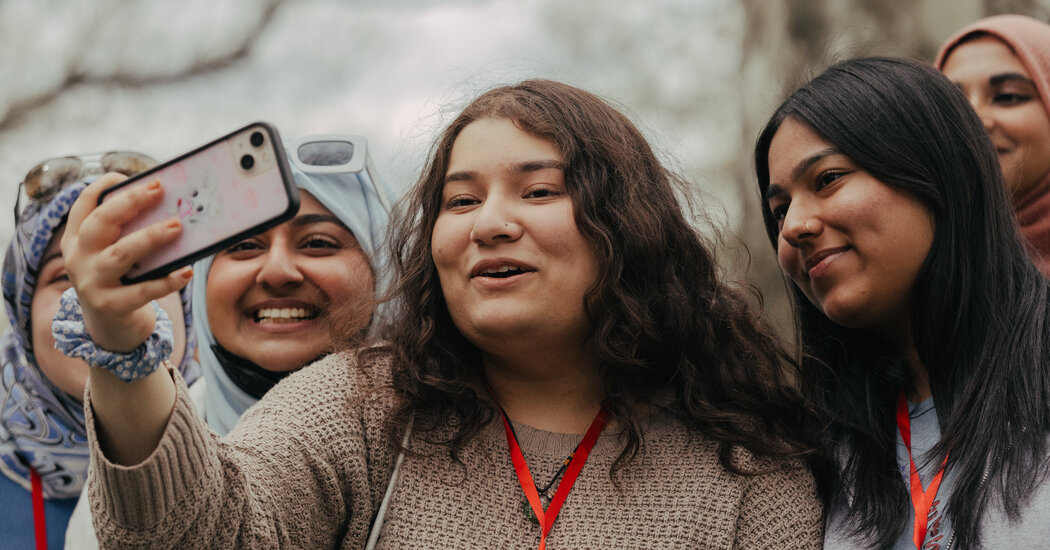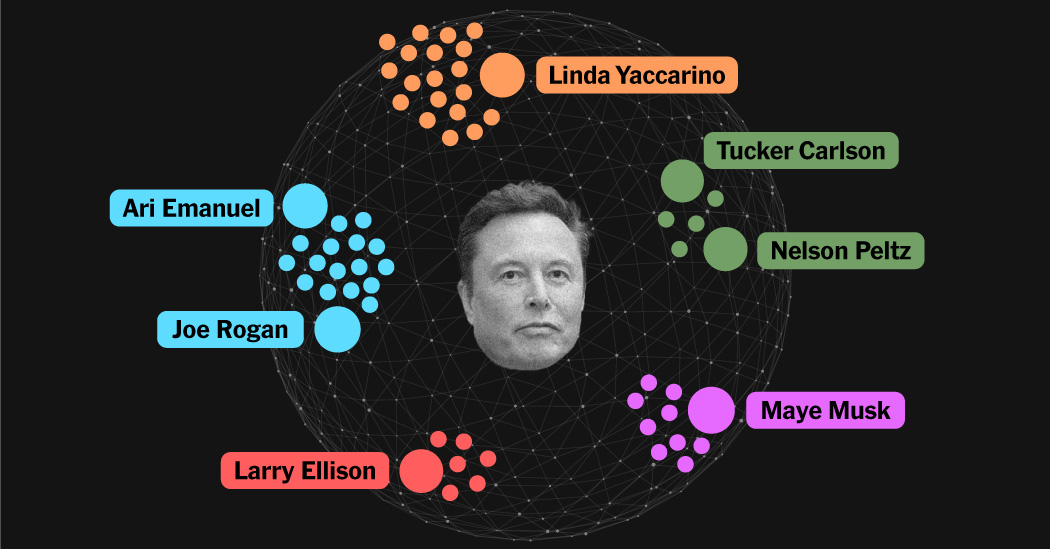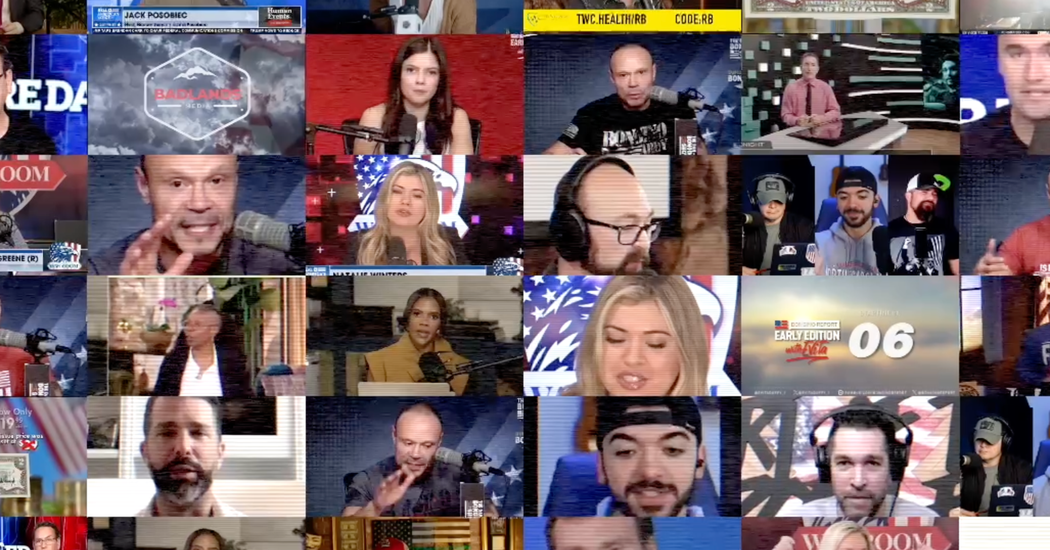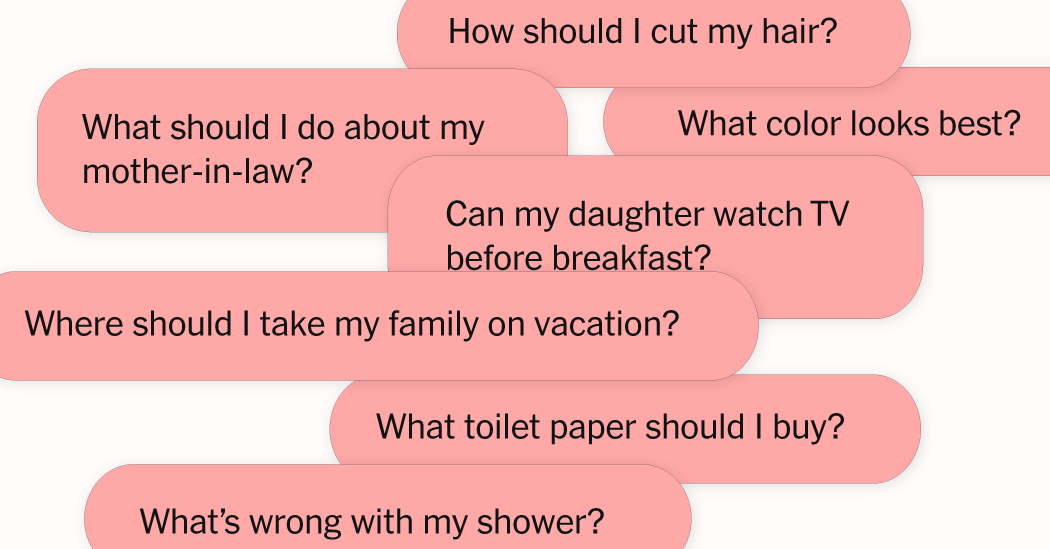Over the last 10 months, Chelsea Prudencio, a junior at Baruch College in Manhattan, got a crash course in artificial intelligence through a new program for lower-income, Latina and Black young women majoring in computing.
As part of the program, called Break Through Tech A.I., Ms. Prudencio completed an intensive class developed by Cornell Tech faculty with input from a few tech executives. She threw herself into a student A.I. project for Pfizer to create heart disease prediction models. And she was mentored by a cybersecurity executive at Citigroup on how to ace technical job interviews.
These are the kinds of important learning and career opportunities that can help computing majors land jobs in fast-moving fields like A.I. and data science. But students like Ms. Prudencio, who attend public colleges not known for top computing programs, often face challenges gaining access to them.
“I was never made aware of health tech before my project with Pfizer,” said Ms. Prudencio, 20, who works part time at a tennis center. Now she hopes to pursue a career in health A.I. “This is a lot more fulfilling, I personally think, because you’re building models that could potentially save lives.”
Break Through Tech is at the forefront of university-led efforts to reduce obstacles to tech careers for underrepresented college students, including lower-income, Latina and Black young women. The new A.I. program, the largest of its kind in the United States, takes a novel approach in a tech industry whose recruiting criteria — technical interviews, hackathon wins, internal employee referrals, previous internships — often advantage wealthier students at top universities. It aims to help lower-income students, many of whom have part-time jobs on top of their schoolwork, learn A.I. skills, develop industry connections and participate in research projects they can discuss with job recruiters.
Hosted and supported by M.I.T., the University of California, Los Angeles, and Cornell Tech, the A.I. program is free. And it is intended primarily for students attending public institutions — like campuses of California State University, City University of New York and the University of Massachusetts systems — or minority-serving institutions like historically Black colleges.
Participants take an online summer course in the basics of machine learning — that is, A.I. systems that teach themselves to detect patterns in data sets. The students, who receive stipends of $2,000, are also assigned career mentors from institutions like Columbia University and Accenture. They work on student A.I. challenges set up by employers like Google, JPMorgan Chase and Memorial Sloan Kettering Cancer Center.
This year, students also participated in a semester-long competition to develop A.I. models to distinguish tens of thousands of digitized images of plant specimens belonging to the New York Botanical Garden, one of the world’s premier collections of plants, from other kinds of images like insect photographs. The winning models achieved 99 percent accuracy or higher. Emily Sessa, the director of the botanical garden’s herbarium, said the students’ work could ultimately help botanists more effectively track the impact of climate change on specific plants over time.
“I loved working on the code and seeing the results,” said Sabreen Shigri, a computer engineering major at Stony Brook University on Long Island. Her student team, called the Foxgloves, took third place in the competition. “I thought it was cool that we could use A.I. to help the environment,” she said.
A few weeks ago, 150 students who had just completed the A.I. program traveled to the botanical garden, in the Bronx, for a graduation event that included a scavenger hunt to find real flora and fauna. One of them was Saliha Demir, 20, a senior at the New York Institute of Technology on Long Island.
“I went in with almost no experience,” Ms. Demir said of the A.I. program. Now, for her senior project, she has developed A.I. models to identify foods that meet more than a dozen different kinds of dietary restrictions — such as gluten-free diets or halal food prepared according to Islamic dietary rules. “We’re trying to make an A.I. that can distinguish whether a food is halal,” she said.
This summer, Ms. Demir has an internship in mobile computing at a business software company.
Break Through Tech’s approach seems to be working, at least in one important measure: paid tech internships, a crucial career step that can lead to full-time job offers.
Last year, for instance, only 36 percent of graduating college seniors nationwide reported having had a paid internship, according to data from the National Association of Colleges and Employers, an organization for recruiters and college career advisers. By contrast, of the nearly 150 students who completed the A.I. program over the last two years, Break Through Tech said it had placed 82 percent in paid internships at employers including Accenture, Amazon, Fidelity, Google, Mass General Hospital and Microsoft.
In other words, the A.I. program is not trying to reform elitist tech industry recruiting practices. It is conferring prestige credentials from elite institutions like Cornell and M.I.T. on students from other schools to help get them get hired in tech jobs.
“These students are not in schools with well-known names or from families that can open doors,” said Judith Spitz, the executive director of Break Through Tech. “We are just giving students the opportunity to show what they are capable of.”
Computer science remains a heavily male-dominated field. In 2022, men accounted for nearly 78 percent of the bachelor’s degrees awarded in computer science, while Latina and Black women combined earned just 2 percent of the bachelor’s degrees, according to an annual report by the Computing Research Association on universities with Ph.D. programs in the field. Likewise, at some large tech firms, only a tiny percentage of computer programmers and software engineers are Latina or Black women.
In 2016, Dr. Spitz, a former Verizon executive, started an initiative at Cornell Tech to tackle gender disparities. Now known as Break Through Tech, that program offers short-term, paid tech internships to help computing students gain workplace experience and industry connections.
In 2022, Break Through Tech began an effort specifically focused on broadening access to A.I. careers. It received $26 million in funding from donors, led by Pivotal Ventures, an investment company started by Melinda French Gates.
The effort is rapidly growing. In April, nearly 400 participants graduated from the A.I. program. For the upcoming academic year, Break Through Tech has accepted nearly 1,000 students.
The program also teaches students about the potential for A.I. bias — like faulty facial recognition systems that have led to the false arrests of Black men.
“As we think about both the promise and the peril of A.I.,” Dr. Spitz said in a talk to the students at the botanical garden, “who’s in the room asking the hard questions about what’s the definition of fairness? Who stands to gain or lose?”
Critiquing A.I. can also come with risks. Several prominent female researchers working at Big Tech companies who raised questions about A.I. biases are no longer employed by those companies.
Some students said they would also like to learn to grapple with more existential questions — such as when not to use A.I. at all.
“We tend to glaze over how people’s voices can be manipulated and just how dangerous A.I. can be,” said Ruth Okuo, a computer science major at Hunter College in Manhattan, noting that participating in the program had made her want to learn more about potential A.I. risks and harms. “I want to know what the laws are or should be.”
Ms. Okuo, who works part time at an Apple Store, said she was looking for new opportunities to further her interest in A.I. ethics.
As for Ms. Prudencio at Baruch, she has landed a paid summer internship at Memorial Sloan Kettering Cancer Center. She starts next month.







